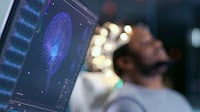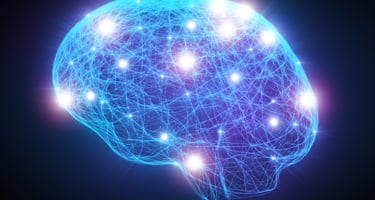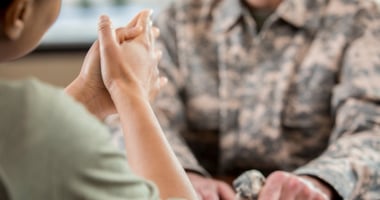Stimulants May Improve Efficacy of rTMS for Patients With Major Depression

Patients with major depressive disorder (MDD) who take psychostimulants may respond better to repetitive transcranial magnetic stimulation (rTMS) than those not taking psychostimulants, suggests a report in Depression & Anxiety.
“These findings suggest a novel pharmacologic augmentation strategy for patients undergoing rTMS treatment of depression,” wrote Scott A. Wilke, M.D., Ph.D., of the Semel Institute for Neuroscience and Human Behavior in Los Angeles and colleagues. “Because many patients have a limited response to rTMS treatment, an augmentation approach to maximize treatment benefit by harnessing psychopharmacology would be a significant advance.”
Wilke and colleagues performed a retrospective study of patients who were treated for nonpsychotic MDD at the UCLA TMS Clinical and Research Service between September 2009 and January 2017. They specifically focused on patients who were taking medications at the time of rTMS treatment and were assessed using the 30-item Inventory of Depressive Symptomatology Self Report (IDS-SR30) periodically over the course of rTMS treatment.
The final analysis included 37 patients taking known dosages of one or more psychostimulants and 53 control patients who were not taking psychostimulants or benzodiazepines. (Patients taking benzodiazepines were excluded from the study because previous research suggests that the medications may reduce the efficacy of rTMS.) The psychostimulant group included 22 patients taking lisdexamfetamine/dextroamphetamine, 9 patients taking methylphenidate/dexmethylphenidate, and 7 patients taking modafinil/armodafinil (one patient was taking two psychostimulants). Patients were treated with up to 30 rTMS sessions over six weeks.
Patients who took psychostimulants had a significantly greater overall clinical improvement on the IDS-SR30 from baseline to the end of the rTMS treatment than those not taking these medications while undergoing rTMS. Patients who took psychostimulants also showed significantly greater improvement in the IDS-SR30 subdomains of sleep and mood/cognition, but not in anxiety/arousal, Wilke and colleagues noted. Additional analysis suggested that smaller doses of lisdexamfetamine/dextroamphetamine were associated with better rTMS treatment outcome.
The authors pointed to several limitations of the study, including the small sample sizes and limited knowledge of how long the patients had been taking the psychostimulants. “Finally, although the findings are suggestive, they are correlative and cannot address causal relationships. Thus, the clinical implications of combining psychostimulants and rTMS are unclear and caution is warranted until prospective trials can establish the safety and efficacy of such interventions,” they wrote.
For related information, see the American Journal of Psychiatry article “Trajectories of Response to Dorsolateral Prefrontal rTMS in Major Depression: A THREE-D Study.”
(Image: iStock/gorodenkoff)
Don't miss out! To learn about newly posted articles in Psychiatric News, please sign up here.






